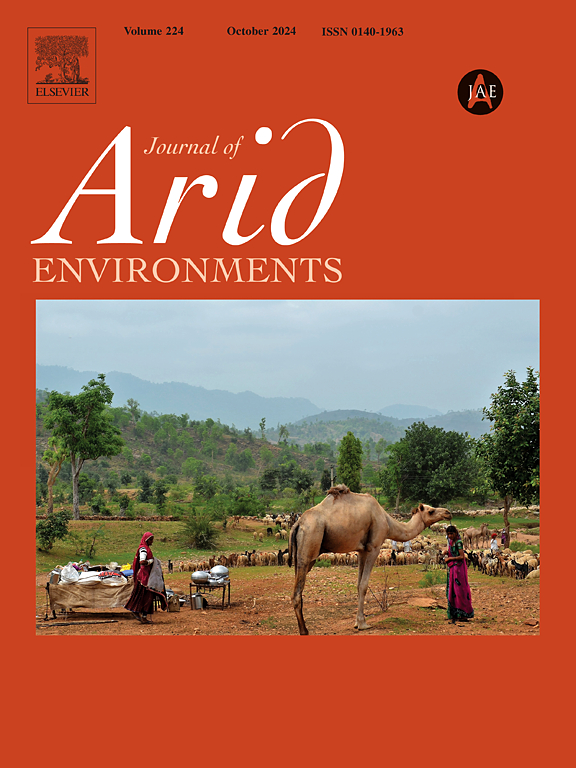Synergistic pathways to promote nature-based Solutions: How policy and peer collaboration shape herder decisions on artificial pasture cultivation in Qinghai, China
IF 2.5
3区 环境科学与生态学
Q2 ECOLOGY
引用次数: 0
Abstract
Recognized as a Nature-based Solution (NbS), artificial pasture cultivation (APC) provides a viable alternative forage source for livestock production while supporting the restoration and conservation of natural grasslands. However, its successful implementation relies crucially on coordinated efforts between government and local institutions, yet empirical studies examining their interplay remain scarce. Given that herders' adoption of APC is a rational decision-making process shaped by subjective cognition, this study develops an extended theory of planned behavior (TPB) framework to evaluate how policy intervention and peer collaboration influence adoption. Using survey data from 363 herder households in Qinghai Province, China, SEM is employed and the results show that policy intervention and peer collaboration significantly improve herders’ behavior intention and actual implementation of APC practice. Government policies predominantly reinforce subjective norms and perceived behavioral control via regulatory measures and financial incentives, while peer collaboration leverages weak-tie organizational networks to facilitate knowledge dissemination and reciprocal support. These findings imply that effective NbS promotion requires context-specific policy designs that combine complementary instruments. In cases where NbS adoption involves high costs or substantial production adjustments, integrating policy implementation with existing local collaborative networks can enhance implementation effectiveness.
促进基于自然的解决方案的协同途径:政策和同伴协作如何影响中国青海牧民对人工草场种植的决策
人工牧场(APC)被认为是一种基于自然的解决方案(NbS),它为畜牧业生产提供了一种可行的替代饲料来源,同时支持自然草地的恢复和保护。然而,它的成功实施在很大程度上依赖于政府和地方机构之间的协调努力,但检验它们之间相互作用的实证研究仍然很少。考虑到牧民采用APC是一个受主观认知影响的理性决策过程,本研究建立了一个扩展的计划行为理论框架来评估政策干预和同伴协作对牧民采用APC的影响。利用青海省363户牧民家庭的调查数据,运用SEM进行实证分析,结果表明政策干预和同伴协作显著提高了牧民APC实践的行为意愿和实际实施情况。政府政策主要通过监管措施和财政激励加强主观规范和感知行为控制,而同伴合作利用弱联系组织网络促进知识传播和相互支持。这些发现表明,有效的国家统计局推广需要结合互补工具的具体情况的政策设计。在采用国家统计局涉及高成本或重大生产调整的情况下,将政策实施与现有的地方协作网络相结合可以提高实施效率。
本文章由计算机程序翻译,如有差异,请以英文原文为准。
求助全文
约1分钟内获得全文
求助全文
来源期刊

Journal of Arid Environments
环境科学-环境科学
CiteScore
5.70
自引率
3.70%
发文量
144
审稿时长
55 days
期刊介绍:
The Journal of Arid Environments is an international journal publishing original scientific and technical research articles on physical, biological and cultural aspects of arid, semi-arid, and desert environments. As a forum of multi-disciplinary and interdisciplinary dialogue it addresses research on all aspects of arid environments and their past, present and future use.
 求助内容:
求助内容: 应助结果提醒方式:
应助结果提醒方式:


